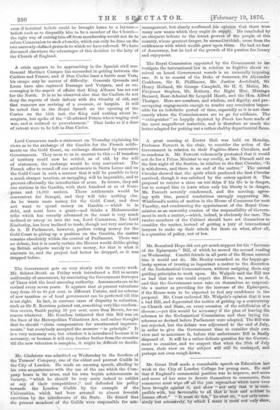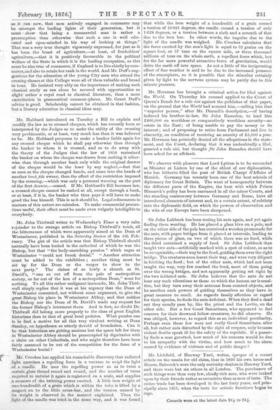Mr. Grant Duff made a remarkable speech on Education last
week at the City of London College for young men. He said that if England's commercial position was to improve, and more and more of her sons to devote themselves to commerce, then commerce must wipe off all the just reproacher which have ever been brought against it, and show "not only that it is coni- patible with, but favourable to all that is best and noblest in human effort." 4' It must do this," he-went on, "not cmly iriten- sively but extensively; by which I mean it must not only show,
as it can now, that men actively engaged in commerce may be amongst the leading lights of their generation, but it must show that being a commercial man is rather a presumption than otherwise that such a one is well edu- cated and open-minded in his way of looking at things." That was a very true thought vigorously expressed, for just as it has been the boast of agriculture,—at least, of freeholders' agriculture,—that it is positively favourable to the political welfare of the State in which it is the leading occupation, so this must be also true of commerce, if England is to live chiefly by com- merce, and also to retain her rank in the world. And Mr. Duff's sug- gestions for the education of the young City men who attend the evening classes at this College were all of them valuable and broad in tone. He insisted very ably on the importance of making such -classical study as can alone be secured with opportunities so slight rather a royal road to classical literature, than a mere exercitation in grammatical common-places. Mr. Grant Duff's advice is good. Scholarship cannot be obtained in that fashion, but a literary education in classical ideas may.



































 Previous page
Previous page